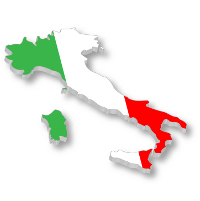In a similar vein to the rest of the world, Italy is experiencing challenging times during the current economic climate, with regards to employment opportunities and the financial crisis. Unemployment is at an all-time high and the recovery has been slow for the country.
Expats will be interested to hear that the North has far more opportunities for work than the South, although every area differs. Despite the recent global recession, there are a number of employment avenues available in Italy for both locals and expats, if you know where to look and target your search appropriately.
When moving to Italy (or beforehand), it is wise to contact as many prospective employers as possible to open up options and opportunities. Recruitment companies usually advertise and deal with executive positions, key personnel and management roles which are often highly paid; whereas local employment offices tend to offer manual work (jobs in retail or construction) which are lower paid but more readily available (immediate starts etc.).The best place to begin a job search in Italy is the local, regional and national newspapers and online. If you are skilled in a particular sector, it is worth looking at trade publications or visiting various information centers, libraries or industries directly.
One of the key ways to secure work in Italy is via networking. It is said that nepotism is rife in the country, and expats and locals are more likely to find work if they know somebody in the organization already or are recommended. Joining various networking clubs, some of which are aimed solely at expats, is a great way to meet new people and hear of various vacancies. Applying for a job in person, especially when acting upon a recommendation, is usually the most efficient method of securing employment in Italy.
The current employment situation very much depends on whereabouts in Italy you are based or plan to move to.
A number of expats settle in Milan due to its successful financial industry (even during the current global recession). Those with banking or accountancy experience will find the country’s largest financial centers situated in Milan, where the stock exchange and world banks have set up a base. Milan has the highest national average for earnings in Italy.
In addition to banking, Milan houses some of the world’s most famous fashion houses, including headquarters for Gucci and Versace. It is a leading exporter of clothing and design. Milan is a shopper’s paradise and tourist and locals alike enjoy a visit to the numerous designer shops.
Milan and Rome both benefit from high numbers of visitors and are perfect for seasonal vacancies or jobs within the tourism and hospitality sector. Italy has 46 million visitors annually.
Many international media headquarters are based in Italy’s capital, Rome. As well as offering a number of international schools, which might appeal to expat families, the schooling, large international airport and foreign offices may appeal in terms of quality employment opportunities.
For those looking at self-employment, Sicily and Sardinia tend to be the places of choice, particularly within the tourism sector. Social security and health contributions will be the responsibility of the self-employed person if this is the route you decide to take and it is worth researching unique selling points for your business, particularly in busy tourist centers.
As a country, Italy exports motor vehicles, food, fashion, chemicals and energy and these fields will provide continuous employment. The ability to speak Italian is beneficial for all roles in the country.
Although Italy has suffered of late in restructuring after the global recession and unemployment is over 11% due to less people spending, the economy is set to strengthen and recovery will become more visible. Fields which have struggled include automotive engineering, construction and electronics. The food and drinks industry do not report to be affected as much as other sectors and the tourism industry is getting back on its feet.
Competition for vacancies in Italy is fierce and preference usually goes to Italians. However, employment opportunities do exist (and will become more frequent) for those who are able to do highly skilled roles, especially technical roles in which there are labor shortages (for example bio technology).

